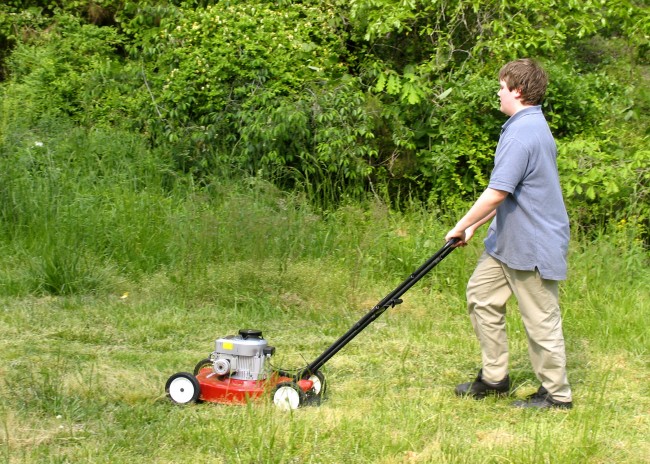Raising Frugal Kids
Children are rarely involved in the day to day decisions of their family’s financial picture but constantly want things that cost money. There should be a better step by step guide to raising frugal kids but here are some tips. Why shouldn’t kids learn the value of money by helping the family budget their money or pay bills? Wouldn’t teaching financial responsibility early in life help children grow up to be financially independent and capable of managing money? When my children were younger they would always ask if they could use my ATM card to go buy toys. They didn’t fully understand what money was or how I got it, all they knew and recognized about money was that when mom needed it she used a card to draw it out of a machine. When children get into their teens their needs and wants increase immensely and some of their demands and things they think they are entitled to can be quite insane. Here’s a few ways to teach children and teens about the value of money and how using it frugally will stretch its worth.
Younger children can be taught the value of money by earning it through performing chores and through helping mom pay the grocery bill at checkout. Even a toddler will recognize that when you go the grocery store and put items into the cart that those items aren’t free. Younger children can also help clip coupons, they might not understand what a coupon is yet but as they grow up they will remember clipping coupons and know that it helped their family save money.

Adolescent children can be further educated about money by earning it through extra chores around the home, mowing the neighbors yard or babysitting their cat or dog. This is also a great age to introduce an allowance. When they fail to do a requested chore parents have a great opportunity to teach what happens when we miss a day of work by deducting that chore value from their money and using it to pay their sibling to do the missed chore. Another great way to teach the value of a dollar to adolescent children is to have them research prices of toys and electronics online, wait for the requested item to go on sale and then purchase it.
With teens money is a bit different. Many child psychologists and human development experts suggest an allowance be given with no chore requirements attached. Allowances are given because the teen is part of the family and as such they are given certain privileges, money and a cell phone being a few of them, but there are certain stipulations attached to this. Chores should still be a regular part of a teenager’s life because they are part of the family but allowance should not be indicative of how many chores they got through that week. As a chore replacement you can assign bill paying and grocery shopping. This is a great way to teach a teen about the value of money and how quickly it can be used up. In the process you are teaching them important life skills they will need once they leave home.
As you can see I have a range of ages in my house so I am working on helping all my children grow up knowing the value of money. What tips have you used in your household?







This is the one thing I fear I have failed my kids miserably on. It is SO hard to teach the value of money.
I totally agree that its very important to raise kids know know the value of money and hard work. My son is 5, but we started him with a piggy bank at a young age and he would get rewarded for good behavior.
We teach our kids the value of money in different ways. They earn money through chores, etc. But when we are clothes shopping for back to school, they have a set amount, and if they want something that costs more, they have to cover the extra.
you have an adorable group of kiddos and yes I agree teaching them financial responsibilities early in life will help them in the long run.
ugh, it’s hard to teach kids the value of money and so easy just to give them everything they want. We are trying to teach!
My children are 6 and 3, and whilst they want to save for things, the timescale sometimes seems too long for them. We now have money jars with a picture cut-out of the things they want to buy. It’s a constant reminder for them and a goal to keep in mind. It’s working well so far!
I received an allowance growing up and plan to do the same with my children. I also expect them to help out around the house and get some kind of job when they are old enough. Teaching kids about the value of a dollar seems to get harder with each passing day.
These are some great tips! My parents were really frugal when I was growing up and my sister and I really felt it. I understand why they did it, but it was not necessary for them to be so drastic about it. They were just be careful. So, now that I have children, I struggle to find a good balance to teach them when to be frugal and when it’s okay to splurge occasionally.
I don’t know that I agree with giving them cell phones and allowance just for being part of the family. I know many do, though. My kids have a chore system that they have to do certain chores daily and then there are extra chores that they can do to earn money. They also have to tithe, pay family taxes and put a percentage into savings out of what they earn.
My kids are required to work for their allowances and allowance is based on how much was completed or if anything extra was done. That’s how it is in the real world you get paid for showing up and performing. You put in extra time you get overtime and I have a big age range too. (Ages 4-20)
I agree, children need to know and appreciate the value of money. We don’t pay our children for chores done around the house but we do give them a weekly allowance that they need to separate into tithe, savings and what they could spend. If they bring a new toy or book into the house, we ask them to find a toy/book from their room to donate to our local shelter.
I definitely strive to teach my kids the value of money. They can’t stand the fact that I have a long list of chores for them to do, but in reality, it does nothing but help them in the long run. They also are starting to see how long it takes to earn the money needed for things that they want and even things they need. Last night, I honestly thought about posting our recipe from the grocery shopping on the fridge and marking items that they wasted because they refused to eat. To give them a physical reminder of how much money they literally threw away.
It really is SO important to teach kids the value of money.
We haven’t started an allowance yet with our 2 and 4 yo boys – but we do have them put money in the piggy bank (that they earn for doing chores).
These are great tips. We don’t offer money yet